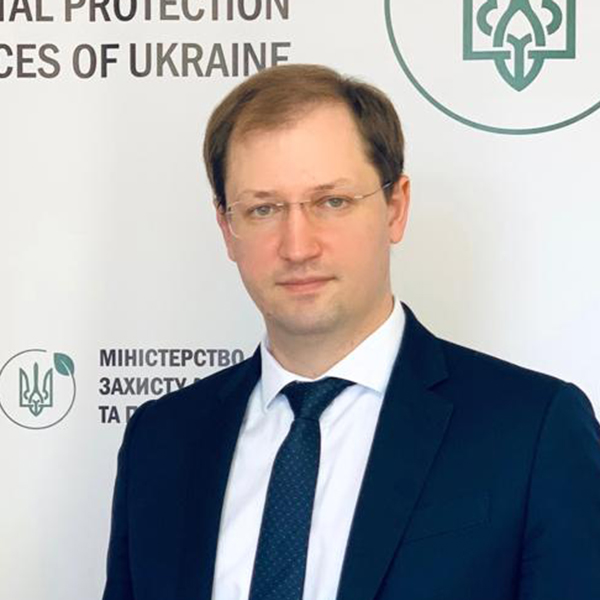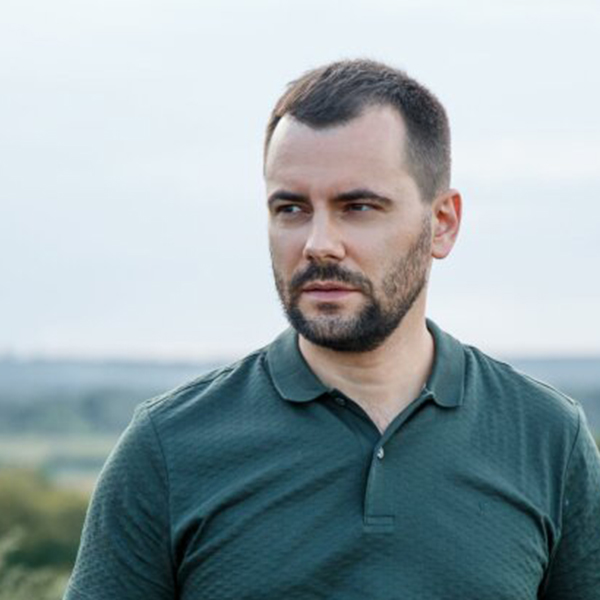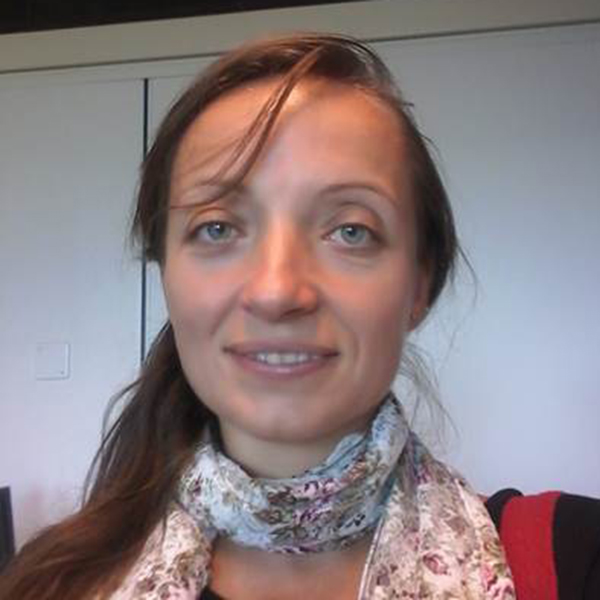A workshop was held to identify more priority categories of goods, works and services for sustainable public procurement

On July 20, an online workshop "Promotion of sustainable public procurement and ecolabelling in Ukraine. Priority categories of goods, works and services for sustainable public procurement" was held.
Sustainable public procurement (SPP) is a lever that the government can use to ensure the conservation of natural resources, stop degradation and improve the environment, increase the market for environmental goods, services and technologies, strengthen incentives for innovation and investment in environmental products. In the social sphere, such an approach will help to improve the quality of education, work and life standards. The economic advantages of SPP are based on the method of the full life cycle assessment of the subject of procurement, which provides the highest level of efficiency in the use of budget funds. SPP are already being successfully implemented in 89 countries around the world, helping to increase the competitiveness of products in world markets, more efficient management of natural capital, improve the quality of life, sustainability of ecosystems and the economy.
The workshop was attended by the representatives of the Ministry of Ecology and Natural Resources, the Ministry of Economy, the Verkhovna Rada Committee on Environmental Policy and Environmental Management, the EU Delegation to Ukraine and experts from the United Nations Environment Program (UNEP) and the NGO Living Planet .
Презентації експертів проєкту
The implementation of the UNEP approach to prioritizing goods and services for SPP
The process of identifying new categories of goods, works and services for SPP in Ukraine
New priority categories of goods, works and services for the development of sustainability criteria
Standards, labelling and confirmation of conformity

Ruslan Strilets, Deputy Minister of Ecology and Natural Resources of Ukraine
Since the signing of the Association Agreement between Ukraine and the European Union, Ukrainian legislation has been rapidly reformed. The system of public procurement has undergone significant changes, the reform of which is still ongoing. The updated in 2019 the Law of Ukraine "On Public Procurement" already allows the customer to purchase safer and more environmentally friendly goods, works or services.
Using this opportunity, the state and local authorities, government agencies, enterprises, and utilities can contribute to the implementation of state environmental and climate policies.
The National Action Plan for Environmental Protection until 2025, approved by the Government of Ukraine in May 2021, contains measures aimed at supporting the greening of various sectors of the economy and public procurement. The implementation of such measures is possible with the financial support of the European Union, the German Society for International Cooperation and the World Bank.
Through technical assistance projects, we strengthen the capacity and awareness of national experts and develop new tools for customers that are needed to apply environmental criteria to various product categories in public procurement.
Thorough criteria, assessment of benefits and risks, market analysis for the availability of environmentally friendly products are important studies that must be conducted before applying the criteria to the subject of procurement with reference to relevant regulations, environmental standards and labeling.
The Ministry of Ecology demonstrates by its own example the success of procurement with the application of environmental performance requirements. For example, laptops were purchased to provide remote work for the Ministry staff during the quarantine period. One of the requirements of the technical specifications was that the products meet the environmental criteria for computer equipment of the type I ecolabelling program with reference to DSTU ISO 14024 for a domestic manufacturer (or the equivalent of this standard for a manufacturer in another country). Due to the application of this requirement, more energy-efficient products were purchased, which are subject to repair, are safer in terms of emissions of hazardous substances and exposure to the eyes of users, with a longer service life. At the same time, the purchase price did not exceed the market average price. Procurement of cleaning services, vehicles for national parks are also made using environmental criteria. We appreciate the support of technical assistance project experts in implementing this approach.

Olga Simak, Sector manager, Environment at EU Delegation to Ukraine
In the countries of the European Union, sustainable public procurement is an integral part of the European Green Deal, as it can be used as a means to successfully implement the new sustainable development agenda. The action plan on the circular economy, industrial development strategy and biodiversity conservation - the key components of the green deal - provides that public authorities, in their procurement responsibilities, can make an important contribution to sustainable consumption and production, for example when choosing organic products. services and works. This is also very important for Ukraine, which has confirmed its interest in the "green" transformation of its economy and the European Union supports this aspiration. In this context, the accelerated implementation of the provisions of the Association Agreement, including in the field of environment, public procurement and competition, is important for achieving the new goals of green transformation.

Anna Yuldashova, Deputy Director of the Public Procurement Department of the Ministry of Economy of Ukraine
Since 2018, the Ministry of Economy has been supporting the operation of the non-price criteria designer, which was created as part of an incubation program for civil servants of the EU Association Lab, funded by the Federal Government of Germany. The team "Non-price criteria in public procurement" included the representatives of the Ministry of Economy, the Ministry of Energy, SE "Prozorro", NGO Living Planet, GPAinUA, NGO GoLocal, State Ecological Academy of Postgraduate Education and Management, the Institute of Environmental Management and Balanced Resource Use, Transparency International Ukraine.
As part of the incubation program, new criteria have been developed for 10 new product categories using the sustainability approach. But given the changes that have taken place in the legislation and the challenges of today, the recommended criteria need to be revised. Undoubtedly, there is a need to develop the criteria for new categories of goods, works and services, taking into account the environmental characteristics and other sustainability criteria. The experts from the EU4Environment project will work on the development of the sustainability criteria as tools for customers. This workshop is devoted to an important topic - to determine the most priority SPP goods, works and services.

Oleksandr Marikovsky, People's Deputy of Ukraine - Deputy Chairman of the Verkhovna Rada Committee on Environmental Policy and Nature Management
The new political course of our state is integral to the realization of the goals of the European Green Deal, which, in turn, is a reflection of global efforts to green the economy. And one of the effective tools to achieve this goal is the application of sustainability criteria in the field of public procurement.
It is not easy to change the narrow approach to procurement as a means of economical use of budget funds to a more strategic one.
For domestic businesses, the urgency of green transformation is due to the long-awaited changes related to the adoption of a number of bills in the field of waste management, industrial pollution prevention, air protection and chemical safety combined with the rapid development of green markets in the world.
In order to further strengthen the "green component" of public procurement requirements, it is advisable to consider the types of goods, works and services that pose the least risk to the environment and where, by strengthening environmental performance requirements, we can achieve better environmental and health impact.
Global and European practices play an important role in the development of sustainable procurement, so-called "soft law" acts, including voluntary standards and labelling, recommendations and clarifications for customers, development of standard specifications and contract terms, and generalization of best practices.
But we must keep in mind the risk that the demand for something new without proper knowledge, experience and control by the state may affect the development of new forms of unfair competition.
That is why I am the author of the amendment not only to the Law on Public Procurement in part that enhances the environmental component, but also to the requirement that any supporting documents considered by the customer must be issued only by competent organizations.
The requirement for national accreditation of a laboratory or conformity assessment body that provides a protocol, certificate or opinion is one of the precautions to prevent green eye-catching and corruption risks in the public procurement system.
Unfortunately, the participants are still provided with unverified data or documents issued by organizations whose competence has not been confirmed. Therefore next step is to improve the legislation regarding the rules of application of ecolabels and declarations, statistical reporting to assess the capacity and market opportunities for sustainable products, as well as state support for producers of more environmentally friendly products. In my opinion, this should be applied first of all to small and medium enterprises.

Farid Yaker, United Nations Environment Program (UNEP)
Due to the changes in the legal framework and the renewal of the e-procurement platform, which promotes the introduction of SPP, a strong ecolabelling system and the continued support of the EU and UNEP, Ukraine is able to accelerate the transition to sustainable public procurement, green economy model and can lead the activities on greening public procurement in Eastern Europe.

Lesya Nikolaeva, Workshop Moderator, United Nations Environment Program (UNEP)
Sustainable public procurement is one of the most effective tools for the transition to a green economy, which Ukraine has identified as one of its strategic development priorities. By implementing the EU4Environment, funded by the European Union, the international organizations like the United Nations Environment Program, are supporting Ukraine on the planned path of green economic transformation.
The event was attended by more than 200 representatives of customers, suppliers, manufacturers and other stakeholders in the field of public procurement, who had the opportunity to express their views on the new categories of goods and services recommended by project experts to further develop sustainability criteria and update ecolabelling standards.
Additionally, the workshop participants are invited to participate in the survey, which will run until July 25, 2021. To finally determine the list of the most priority goods, works and services for which criteria will be developed (including qualification requirements, technical specifications and non-price criteria), the opinion of each interested person is extremely important to us.
Taking into account the presented results of the research and the opinion of stakeholders, the project experts will work on the development of the recommended SPP criteria for new categories of goods, works and services and the guidelines for their application, taking into account changes in legislation and updated ecolabelling standards.
We will be happy to provide you with additional information and answer any questions you may have about the EU4Environment project and the topic of the workshop.
Contact person Olena Ivanova, NGO Living Planet, tel. + 38-067-886-31-93, info@zhiva-planeta.org.ua
The workshop was organized within the framework of the EU4Environment program funded by the European Union, which helps six partner countries: Armenia, Azerbaijan, Belarus, Georgia, the Republic of Moldova and Ukraine, preserve their natural capital and improve the quality of the environment for people by supporting environmental activities, demonstrating and unlocking opportunities for environmental growth and creating mechanisms for better management of environmental risks and consequences.
Materials for analytical research
- Quantitative and cost data of SE ProZorro on procurement in 2020
- The most purchased goods, works and services in 2020
- Comparative analysis of the most purchased goods, works and services in 2019-2020 (in diagrams)
- Questionnaire for public procurement customers on the most purchased goods, works and services and the application of SPP criteria
- Questionnaire for public procurement suppliers on the problems of participation in tenders and confirmation of compliance of goods, works and services with the SPP criteria
- Questionnaire for customers and suppliers in the field of public procurement to identify more priority goods, works and services for the development of new SPP criteria
- Customer survey results (in diagrams)
- Supplier survey results (in diagrams)
- Types of public procurement and features of their application
- SPP ecosystem stakeholders and their functions and powers
